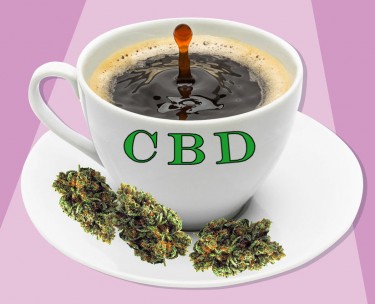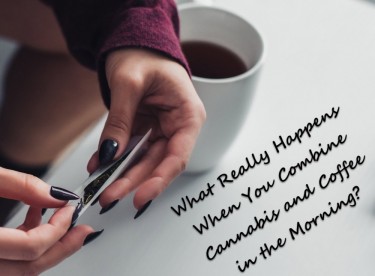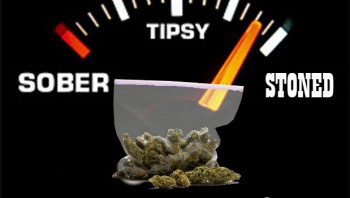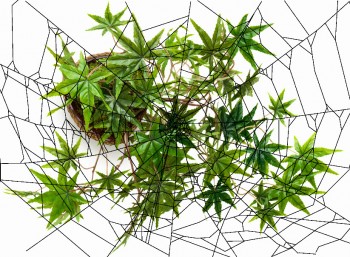Scientists Find New Link Between Cannabis, Coffee, And Your Health
Cannabis, Coffee, and Your Health - Science Finds the Link from CannabisNet on Vimeo.
Cannabis and coffee is a pair well-loved by wake and bake enthusiasts worldwide. But did you know that coffee can affect how cannabis works in your body?
A new study looking at coffee consumption conducted by researchers from Northwestern Medicine revealed surprising results, particularly that coffee changes many metabolites in our blood – more than what was previously known. Metabolites are chemicals found in the blood that undergo changes for certain reasons, such as when we eat and drink.
They also found that the neurotransmitters connected to the endocannabinoid system saw a drop after 4-8 cups of coffee were consumed. The effect is the exact opposite of what happens after you consume cannabis. Neurotransmitters are the chemicals responsible for delivering messages among nerve cells, and the endocannabinoid system is responsible for regulating many important functions in the human body including sleep, addiction, appetite, cognition, energy, and even how glucose is metabolized.
The researchers also discovered that metabolites linked to the androsteroid system increased after consuming 4-8 cups of coffee per day. This finding implies that coffee could help in the elimination of steroids; and since the steroid pathway is linked with diseases including cancer, there is a possibility that coffee has an impact on these conditions too. “These are entirely new pathways by which coffee might affect health,” says Marilyn Cornelis, an assistant professor of preventive medicine at the Northwestern University Feinberg School of Medicine. “Now we want to delve deeper and study how these changes affect the body.”
The scientists use state-of-the-art technology that allowed them to assess hundreds of different metabolites in samples of human blood for the first coffee study of its kind. Their findings suggest new hypothesis about how coffee affects your health.
The study, which took place over a course of three months in Finland, required 47 participants to abstain from coffee for over a month. During the second month, they drank 4 cups a day, and 8 cups a day by the third month. Cornelis, together with her colleagues, resorted to cutting-edge techniques to analyze over 800 metabolites which were collected from the participants after each phase of the study was completed. They discovered that blood metabolites of the endocannabinoid system dropped with coffee consumption, especially when the participants consumed 8 cups a day.
Cornelis explains that the endocannabinoid metabolic pathway plays an important role in regulating stress responses, and some endocannabinoids are reduced when we are exposed to chronic stress.
“The increased coffee consumption over the two-month span of the trial may have created enough stress to trigger a decrease in metabolites in this system,” Cornelis says. “It could be our bodies’ adaptation to try to get stress levels back to equilibrium.” In other words, when coffee is consumed, this can cause stress in the body, leading to a drop in endocannabinoid levels as a means of protecting the body. (Could this suggest that the more coffee you consume means that you need to consume more cannabis?)
“The endocannabinoid pathways might impact eating behaviors,” says Cornelis, referring to “the classic case being the link between cannabis use and the munchies.” Coffee has been used for helping in weight management and reducing the risk of type 2 diabetes.
“This is often though to be due to caffeine’s ability to boost fat metabolism or the glucose-regulating effects of polyphenols (plant-derived chemicals),” Cornelis explains. “Our new findings linking coffee to endocannabinoids offer alternative explanations worthy of further study.”
“What we’re seeing here is that the systems that are impacted by coffee and cannabis overlap,” she says. When you drink coffee with cannabis, this can lead to opposite effects in the system, although they still don’t clearly understand exactly how these interaction works.
Previous studies have found that caffeine (or other A2A antagonist drugs) “potentiated the effect of threshold doses” of THC as well as anadamide, which has a reinforcing effect on each other. In layman’s terms, this means that when you drink coffee, you can also consume cannabis but still get the high that you want. However, if you’re trying to quit cannabis (or go on a tolerance break) after a period of consuming pot and coffee together, caffeine can make it challenging unless you only take coffee in small amounts because of a process called the dose-response curve.
It will be interesting to see what else scientists will find when exploring how coffee and cannabis interact with each other in the human body.
Scientists Find New Link Between Marijuana, Coffee, And Your Brain from CannabisNet on Vimeo.
OTHER STORIES YOU MAY ENJOY...
CANNABIS AND COFFEE, OH YEAH, CLICK HERE.
OR..
ADDING CANNABIS TO YOUR BULLETPROOF COFFEE, CLICK HERE.
OR..
CBD COFFEE AND THE HEALTH BENEFITS FOR YOU, CLICK HERE.










